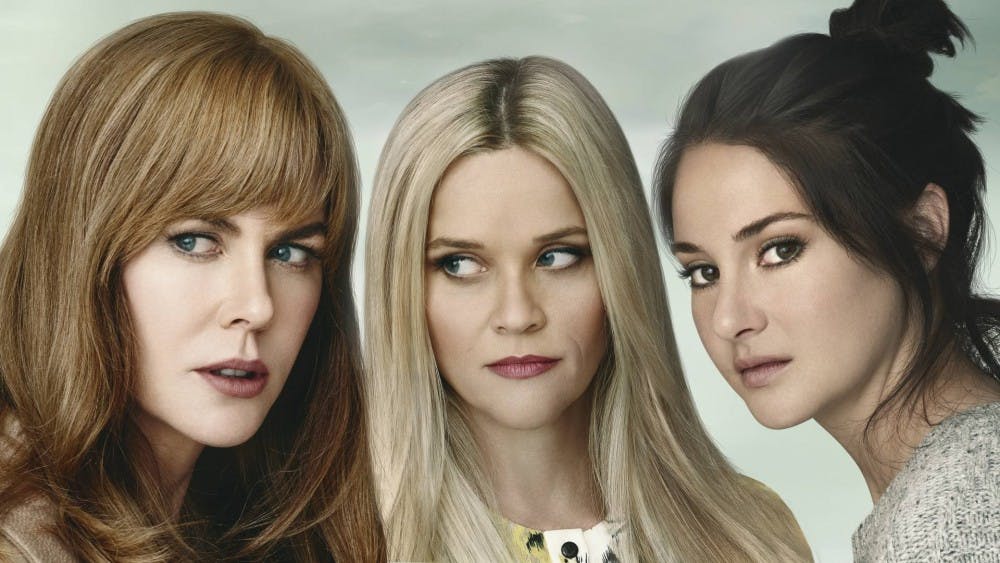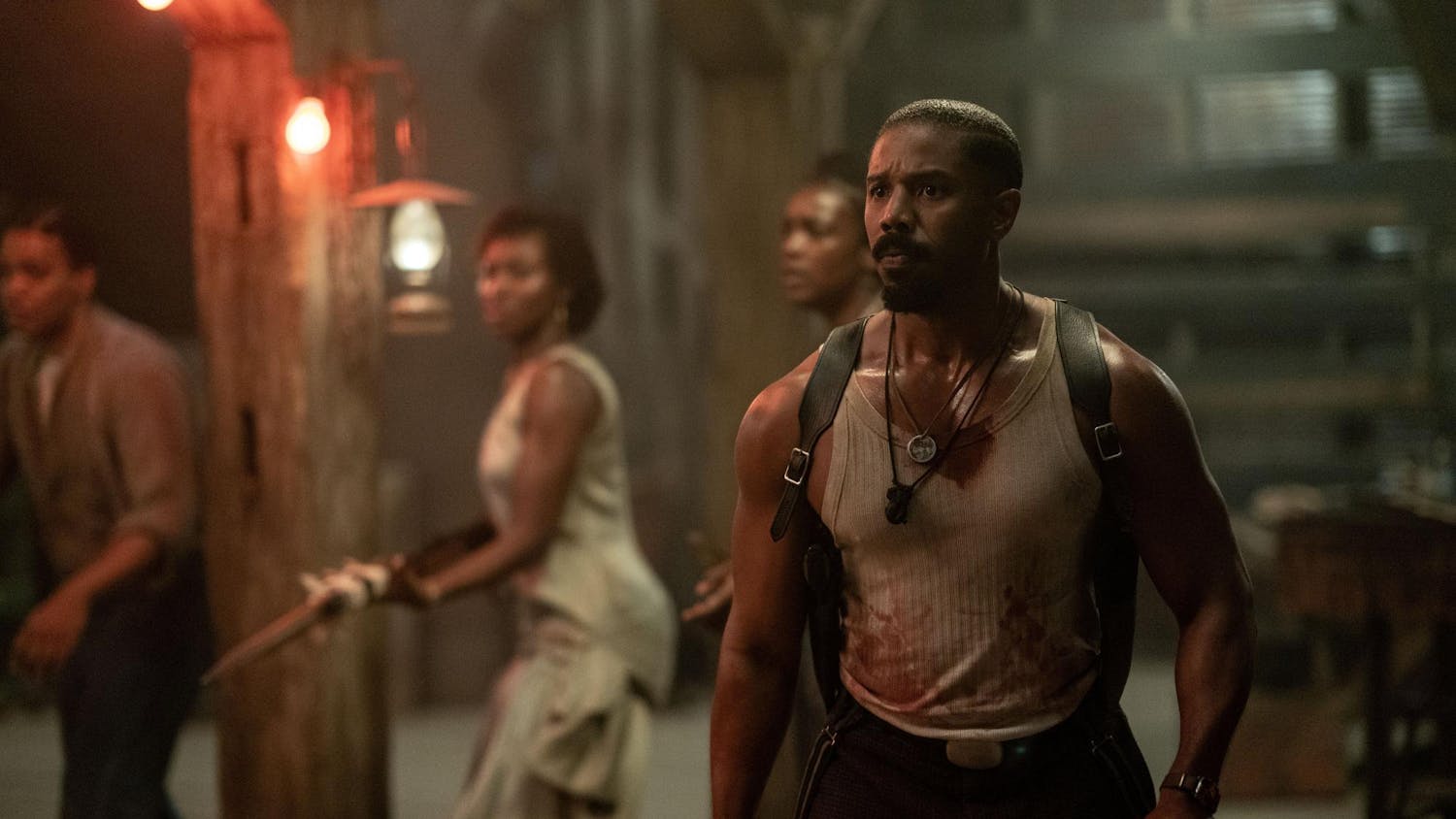If there’s one thing no one saw coming from the second season of HBO’s already wildly unpredictable, campy murder drama “Big Little Lies,” it was disaster.
The first season, by all accounts a masterpiece of long-form storytelling, aptly balanced the intimate struggles of its stellar cast of characters with a gut-punch of a hook — a murder at a wealthy Monterey, California, school’s trivia night with a mystery perpetrator and victim — chronicling the preluding tensions to the big night with precision and rapturous brilliance.
Directed by Oscar-nominated editor and filmmaker Jean-Marc Vallée, the series won six awards at the 2017 Primetime Emmys. A second season felt like both a no-brainer and a guaranteed smash hit even before Oscar-winner and all-around exceptional filmmaker Andrea Arnold came into the picture to replace Vallée for the show’s sophomore season.
And then the unthinkable happened. Episode after episode, week after week, “Big Little Lies” disappointed. Despite no shortage of exceptional material to explore — material that no doubt fits right into Arnold’s wheelhouse, given her singular brilliance in telling stories about class, trauma and femininity — and the addition of screen legend Meryl Streep, the show’s second season failed time and again to find its footing. Compared to the gold standard of its rapturous first season, it was a disaster.
But in the week between episodes five and six, film and television news site IndieWire reported behind-the-scenes turmoil was to blame for the show’s second season.
Despite hiring Arnold under the pretense of wanting a stylistically independent second season that would be as much a work of auteur television as Vallée’s season one, executive producers seized control in late 2018, tempering her surely outstanding vision to match the style of the show’s first season.
It’s a tragic turn of events not only because the team of editors and executive producers who brought the second season to its completion shot themselves in the foot in doing so but also because they seized control away from one of film’s most consistently enthralling voices.
Arnold’s career took off in 2005 when her short film “Wasp,” the story of a poverty-stricken single mother in contemporary Britain, won an Academy Award for Best Live Action Short Film in 2005. It cemented not only Arnold’s intuitive sense of style and aesthetic — marked by a preference for gritty realism, emotional rawness and intimate, handheld photography — but also her affinity for honest stories about class and poverty.
She is, by every measure, exceptional and incomparable.
From there, she began to direct feature films, extrapolating the driving forces behind her early short films and expanding upon them with all the capacity for nuance that feature length afforded her.
The first, 2006’s “Red Road,” about a CCTV operator in Glasgow who takes matters into her own hands when a figure from her past resurfaces, is a palpably tense potboiler of a film about good intentions gone awry and a pensive reflection on the role of the watchdog in an increasingly surveilled society. Like her shorter works before it, “Red Road” emphasizes Arnold’s capacity to craft vibrant and ballsy characters whose electrifying, freewheeling energy crackles and bursts from the screen at every moment, not unlike that of the lovely leading ladies in “Big Little Lies.”
There’s a clear class disparity between the typical Arnold protagonist and the Monterey Five, but Arnold’s affinity for strong characterizations transcends that. And it’s easy to imagine her vision of the series pushing the characters to exciting new extremes and managing to make something of its incessant, stunted flirtations with notions of class and privilege.
Arnold followed her feature debut with “Fish Tank,” a brilliantly written feminist coming-of-age tale that earned her a Jury Prize at the 2009 Cannes film festival and a more divisive adaptation of “Wuthering Heights.” But it wasn’t until her sprawling 2016 magnum opus, “American Honey” that the English, Dratford-born filmmaker set her artistic sights beyond her home country.
If her earlier films cemented her excellence as storyteller and craftsman and her dedication to creating wildly compelling female characters, then it’s “American Honey” that displays her utter mastery of pacing and rhythm. At 2 hours and 46 minutes, it’s a behemoth of a film, yet it carries itself with such grace and intuitive sense of internal rhythm that it often feels shorter than the 26 minute “Wasp.”
In the midst of its sprawling narrative, Arnold finds the time to let every moment, big and small, resonate, and in affording those moments the proper room to breathe, she crafts a film as purely transcendent and captivating as anything she’s ever directed. One can only wonder what that mastery of construction and pacing might have looked if it were translated into the fractal, memory-laden language of “Big Little Lies’” narrative structure.
It’s tragic to see a network like HBO, consistently praised for the boldness of its content, refusing to respect the vision of its own creators. It’s doubly tragic when that disrespect comes at the expense of what might have been a spellbinding and honest female-authored portrait of womanhood and shared trauma.
But the fact of the matter is that, regardless of HBO’s desecration of her vision, Arnold’s vibrant, transcendent body of work speaks for itself. And it speaks a lot louder than the failings of anyone who doubted her ever could.




